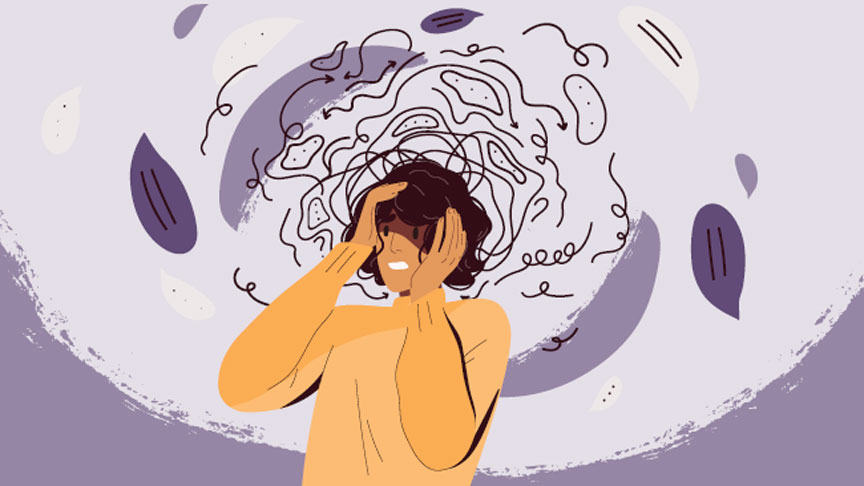
Anxiety is a word used to describe the feeling you get when you worry that something could go wrong.
Mild anxiety is very common and is often a normal everyday experience. Sometimes people can experience a higher level of anxiety after a stressful event or emergency, even if they haven't had a lot of worry before.
Severe anxiety is like having a fear when there is nothing to be afraid of. You may feel it in your body and / or find it hard to do normal everyday things.
The good news is that there are many things that can help.
Symptoms of anxiety
If you are experiencing anxiety, you may notice changes in your behaviours, such as being unable to relax or finding it hard to socialise.
Physical symptoms you may experience include:
- A racing heart, sweating and shaking
- Headaches and muscle aches
- Quick or shallow breathing
- A feeling of butterflies or feeling sick in the stomach
- A feeling something bad is about to happen
- Feeling wound up or on edge
- Numbness in the hands
- Tiredness and fatigue
- Trouble swallowing
- Difficulty concentrating
- Suffering from panic attacks.
Different names for anxiety
If you see a doctor or health professional, they may talk about anxiety in different forms or by different names.
These may include:
- Generalised anxiety disorder
- Panic disorder
- Post-traumatic stress disorder (PTSD)
- Obsessive-compulsive disorder (OCD)
- Phobias.
How can I decrease my level of anxiety?
Milder forms of anxiety may improve when you:
- Talk to someone about things that are worrying you
- Make time to do things that are relaxing or enjoyable
- Become more physically active
- Eat at regular intervals and at least three times a day
- Cut back on tea, coffee, energy drinks and cola drinks
- Limit your use of alcohol and drugs as they can cause anxiety even if they seem to help at first
- Try to have a regular pattern of sleep and work
- Get your physical health checked as some illnesses or medicines can cause anxiety
- Find out more about anxiety.
For more guidance on how to decrease your anxiety through relaxation techniques, visit our blog wellness hack: two ways to relax when you’re stressed.
When should I get further help?
You should consider talking to a professional if:
- You are using alcohol or drugs to cope with your feelings
- Your anxiety is affecting your social, work and family roles
- You are experiencing a high level of distress
- Simple solutions are not helping.
Where can you get help?
Speaking to your local GP or mental health service is a good start.
There are also online support services available where you can speak with a trained professional 24 hours a day by telephone and via online chat.
- 13 HEALTH 13 43 25 84
- Kids Help Line 1800 551 800
- Mensline Australia 1300 789 978
- Lifeline 13 11 14 or https://www.lifeline.org.au/
- Salvation Army 1300 36 36 22
- Dear mind
- Beyond Blue
- Anxiety Treatment Australia